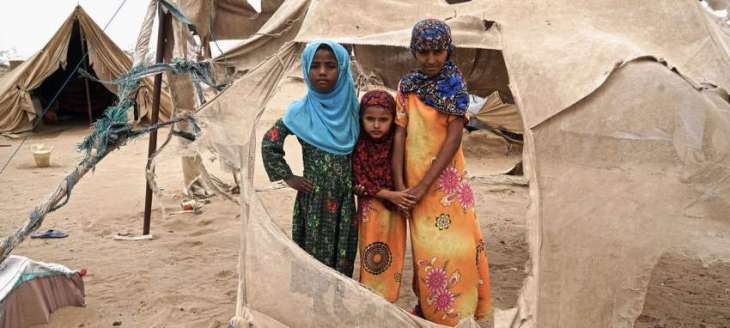Nearly one in every 45 people on the planet will be in need of humanitarian assistance and protection in 2020 due to climate change, infectious diseases and armed conflicts across more than 50 countries, the UN Office for the Coordination of Humanitarian Affairs (OCHA) said on Wednesday in its Global Humanitarian Overview
GENEVA (Pakistan Point News / Sputnik - 04th December, 2019) Nearly one in every 45 people on the planet will be in need of humanitarian assistance and protection in 2020 due to climate change, infectious diseases and armed conflicts across more than 50 countries, the UN Office for the Coordination of Humanitarian Affairs (OCHA) said on Wednesday in its Global Humanitarian Overview.
"In 2020, nearly 168 million people will need humanitarian assistance and protection. This represents 1 in about 45 people in the world, and is the highest figure in decades. The United Nations and partner organizations aim to assist nearly 109 million of the most vulnerable people. This will require funding of $28.8 billion," the report read.
With that OCHA stressed that the actual number of people in need this year was much higher than predicted, "largely because of conflicts and extreme climate events." OCHA Chief Mark Lowcock said in the foreword to the report that the agency was wrong in expecting that the humanitarian needs in 2019 would be similar to those in 2018.
Speaking about concrete geographies, the report first pointed to Yemen, saying that it was still the world's worst humanitarian crisis where almost 80 percent of the population �� or an estimated 24 million people � were in acute need of help. The conflict in Syria, meanwhile, has brought about the largest refugee crisis with 5.6 million refugees and 6 million internally displaced people, the report continued. In Afghanistan, drought and decades of armed conflict will culminate in nearly one quarter of the population needing aid. The Democratic Republic of Congno, Somalia and South Sudan were also reported to be at a very high humanitarian risk.
Economic crises were listed as another major humanitarian risk. In Venezuela, the incomes of many households have reportedly dropped and continued to plummet, causing deterioration in water, power and health services and prompting many to flee. Speaking on Sudan, the UN relief agency called for more international support to the new civilian authorities.
Environmental factors, such as droughts, floods, monsoons, earthquakes and the like, have been another major source of humanitarian crisis and predominantly hit areas with already poor and vulnerable populations, according to the report.
OCHA has existed since 1998 as a body to strengthen the UN response to complex emergencies and natural disasters. Its assistance comes in the form of food packages, medications, information campaigns, coordination as well as cash.




